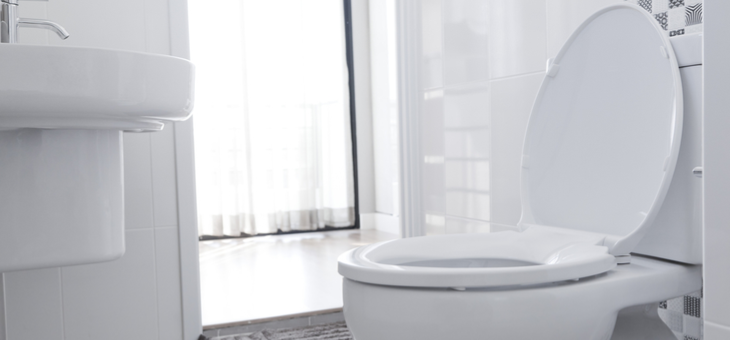There seems to be a phobia for almost everything these days, but one that took us by surprise is a fear of toilets.
It’s a real phobia for many adults, says Dr Simon Knowles, a Melbourne academic at Swinburne University, who estimates that up to 32 per cent of Australians experience toilet anxiety to some degree.
Generally, the anxiety manifests due to:
-
- having difficulty urinating or defecating
-
- the use of a public toilet
-
- being too far from a toilet
-
- the fear of having an accident in public
-
- other people being able to hear or see you use the toilet
-
- the lack of cleanliness of public toilets
-
- being confined in a small space.
Many individuals will ‘hang on’ until they get home rather than use public amenities, Dr Knowles says. Others who fear ‘losing control’ plan their outings meticulously to ensure they are never far from a toilet.
According to the researcher’s website, toiletanxiety.org, the fear has been given several medical names, depending on the individual’s specific concern.
For example, fears or difficulties related to urination may be referred to as psychogenic urinary retention, paruresis, shy bladder syndrome or bashful bladder syndrome.
Fears or difficulties related to defecation may be referred to as psychogenic faecal retention, parcopresis or shy bowel syndrome.
And fears related to being too far away from a toilet may be referred to as toilet proximity anxiety disorder.
Dr Knowles has published a paper which presented a scale that clinicians could use to evaluate patients with shy bladder (paruresis) or bowel (parcopresis) syndrome. It was based on a study involving 720 participants.
“Paruresis and parcopresis-related concerns were associated with social anxiety,” the study found.
“Although yet to be explored in the literature, the experience of paruresis and parcopresis may also be higher in individuals who have an underlying bladder or bowel condition, such as prostate disease or inflammatory bowel disease (IBD).
“It is expected that those living with a bladder or bowel condition may be more anxious with regard to utilising a public toilet due to the potential for their symptoms to be displayed in public, for example, being unable to urinate.”
Included in the analysis were findings from other studies into these conditions:
-
- Like other social phobias, individuals with paruresis demonstrate anticipatory anxiety and fear of negative evaluation, with urinary difficulties that increase as the level of privacy decreases. In addition, this anxiety often leads to avoidance behaviours and limited social functionality.
-
- Bowel movements may even be a greater threat for psychological distress than urination, due to the more obvious sounds and smells, as well as the general shame and embarrassment that people tend to associate with defecation.
Although males scored higher on the shy bladder scale compared to females in the study, the opposite pattern was found for shy bowel, in which females scored higher than males, Dr Knowles said.
According to toiletanxiety.org, individuals with toilet anxiety use a number of strategies to cope with symptoms, such as:
-
- reducing fluid intake in order to avoid using a public toilet
-
- seeking public toilets that offer greater privacy
-
- choosing to use cubicles over urinals
-
- avoiding social activities, holidays, parties, dating, sporting events, and other occasions where the toilet situation may cause anxiety.
“The difficulties associated with toilet anxiety can have a significant impact on quality of life,” Dr Knowles said.
“Not only do sufferers notice that it impacts on their social activity, but it also has consequences for their work. Anxiety around toilet usage can influence the type of work environment that an individual is comfortable in.
“Toilet anxiety can also cause considerable shame among sufferers, and the majority do not seek assessment or treatment.”
Toiletanxiety.org has some resources to help sufferers, including instructions on using cognitive diffusion and mindfulness to release fears.
Do you avoid using public toilets? Do you believe practising relaxation techniques might benefit individuals who suffer from toilet anxiety? Share your tips in the comments section below.
Related articles:
Tips to reduce toilet trips
How to manage bladders
Guide to enlarged prostrate

